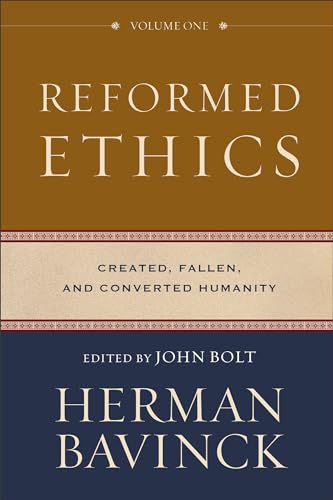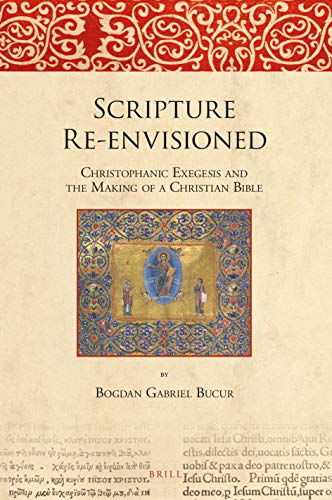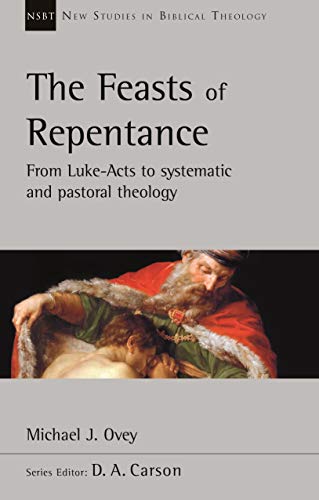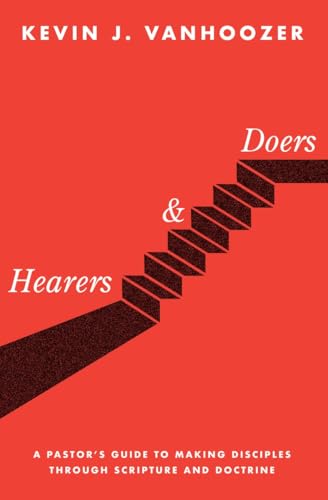Reformed Ethics: Created, Fallen, and Converted Humanity, Volume 1
Written by Herman Bavinck Reviewed By Andrew J. SpencerEvery ethical system has a central goal. The most anemic ethics begin with a very specific goal and then construct a framework that will support that desired end. This is just as true for Joseph Fletcher’s Situation Ethics: The New Morality (Louisville: Westminster John Knox, 1997) as it is for eco-centric ethics like those proposed by Willis Jenkins in The Future of Ethics: Sustainability, Social Justice, and Religious Creativity (Washington, DC: Georgetown University Press, 2013). This rather narrow approach to ethics is very effective at motivating specific action intended to solve perceived needs in the culture at that moment. However, when the central goal of ethics is based solely on crisis points of the contemporary culture, the usefulness of that ethical system is limited to the time and context in which it was invented. In contrast, the most enduringly potent ethics are grounded in an unchanging goal.
The first volume of Herman Bavinck’s Reformed Ethics provides an example of an ethical system with its roots in an unchanging greatest good. Although the contents of the volume are more than a century old, they appear to have aged very little; indeed, this initial volume of Bavinck’s ethics is remarkably fresh and invigorating. This is because, for Bavinck, ethics is about loving God by living rightly through the power of the Holy Spirit. More than that, the center of Christian ethics is the character of God. As such, Bavinck’s ethics are explicitly theological in the deepest meaning of the term. That is, right living must begin by understanding who God is.
Because of their desire to address contemporary problems, many Christian ethics books focus on topics and issues that are present concerns. This is likely enhanced by the number of ethics texts that are written by experts in other fields seeking to apply their knowledge to moral reasoning. In contrast, Bavinck’s Reformed Ethics is really a discipleship manual, because the purpose is not simply to figure out whether a particular reproductive technology is acceptable, but to determine whether a Christian with a proper vision of God can be the sort of individual who would use that technology.
After an engaging preface and introduction by some of the editors, which gives the history of the manuscript and the setting in which it was likely written, the volume begins with an introduction by Bavinck, which is then followed by two books. The introduction lays the groundwork for the discipline of Christian ethics, the first book consists of six chapters dealing with humans prior to conversion, and the second book contains a further six chapters that explore ethics for converted humans.
Bavinck’s introduction alone is worth the price of the entire volume. First, he gives a concise overview of the history of Christian ethics. Then he carefully explains his terms. The chapter concludes with an explanation of Bavinck’s ethical methodology, which is to do moral theology rather than moral philosophy.
Book one begins with the doctrine of human nature, which those familiar with Bavinck’s Reformed Dogmatics or Reformed theology in general will recognize. The second chapter deals with the effects of sin on human nature and offers a set of categories to describe sin. Chapter three delves into the damage selfishness does in human relations. The fourth chapter explores how sin has distorted the image of God in humans. In the fifth and sixth chapters respectively, Bavinck deals with the issue of conscience and the relationship between sinners and the moral law. This portion of the book is about universal ethics, without regard of a person’s status in Christ.
Book two focuses on the spiritual life of Christians. Chapter seven is a primer on life in the Spirit. The eighth chapter provides a history of mystical and pietistic movements in church history. Chapter nine contains a meditation on the sanctification, particularly on imitating Christ and spiritual growth. In the tenth chapter, Bavinck offers comfort to those failing in the Christian life through the doctrine of perseverance. Chapter Eleven outlines various failures within the Christian life. The book concludes with Chapter Twelve, which is all about spiritual disciplines that can help restore Christians from spiritual failure and assist us on the way toward sanctification.
Reformed Ethics is an example of what Christian ethics ought to be—or, at least, where it ought to begin. Instead of offering technical details about the moral issues of his day, Bavinck lays out Christian theology in a way that helps the reader understand holiness. The contents of this initial volume offer a vision of Reformed theology applied to the Christian life and are a foretaste of what promises to be an excellent trilogy. The translation is smooth and readable throughout, with helpful annotations to explain references that would otherwise be obscure to English speakers unfamiliar with the Dutch culture of Bavinck’s day.
For those interested in the Reformed tradition, this volume provides an entry into the canon of important literature. Christian ethicists of all theological interests will benefit from reading this volume because it lays out a vision for the pursuit of holiness that should be central to any proper approach to moral thinking. Pastors and educated laity will also likely benefit from reading Bavinck’s manual on holy living. In short, this book is a classic of Christian thought that is just now seeing the light of day, thanks to the diligent work of the translators and editors.
Andrew J. Spencer
Andrew J. Spencer
Southeastern Baptist Theological Seminary
Monroe, Michigan, USA
Other Articles in this Issue
What are we to make of Cultural Marxism? This article seeks to answer that question, first, by outlining the key elements and legacy of classical Marxism; second, by exploring the neo-Marxism of Antonio Gramsci; third, by assessing the main ideas and impact of “the Frankfurt School”; and, fourth, by offering some reflections on (i) the links between these thinkers and various contemporary developments, (ii) the wisdom of employing the term Cultural Marxism, and (iii) how Christians should respond to the current “culture wars” that are polarizing the Western world.
The diverse essays in Stanley Rosenberg’s edited volume Finding Ourselves After Darwin: Conversations on the Image of God, Original Sin, and the Problem of Evil (Grand Rapids: Baker Academic, 2018) offer a Christian analysis of the human person in light of evolutionary thinking...
Do Formal Equivalent Translations Reflect a Higher View of Plenary, Verbal Inspiration?
by William D. MounceThe article begins by establishing five categories of translation theory and argues that functional translations like the NIV do in fact reflect the meaning of every Greek word, but not in the same way as formal equivalent translations do...







